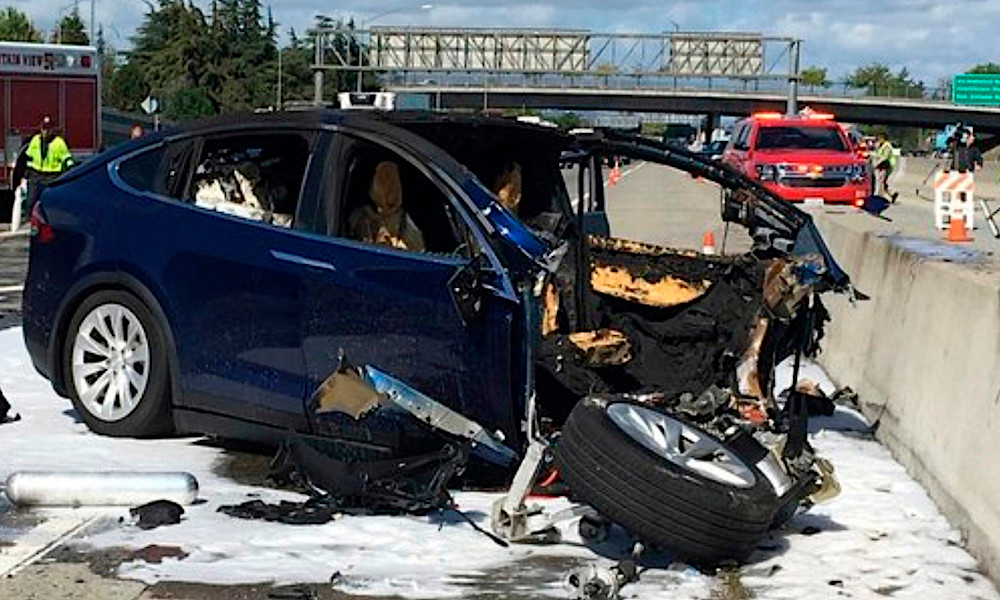Tesla Sued by Family of Apple Engineer Who Died in Model X Autopilot Crash
 Credit: KTVU
Credit: KTVU
Toggle Dark Mode
The family of an Apple software engineer who died when his Tesla vehicle crashed into a highway safety barrier is suing the electric automaker, Bloomberg reported.
Walter Huang, 38, was in his Model X on the way to work at Apple in March 2018 when the vehicle crashed into a safety barrier in Mountain View, California.
The impact caused the vehicle’s battery to burst into flames. Huang was removed from the vehicle and brought to Stanford Hospital, where he died from his injuries.
While it was unclear at the time, investigators later determined that the Model X was in Autopilot mode when the crash occurred.
Huang’s family filed a lawsuit on April 26 in a California court, alleging that the Tesla Model X was “defective in its design” and lacked basic safety features available on other cars.
The complaint also claims that Tesla knew, or should have known, that the Model X was likely to cause injury by “leaving travel lanes and striking fixed objects when used in a reasonably foreseeable manner.”
In a statement to Bloomberg, B. Mark Fong, a lawyer for the family, said that the crash occurred because “Tesla is beta testing its Autopilot software on live drivers.”
“The Huang family wants to help prevent this tragedy from happening to other drivers using Tesla vehicles or any semi-autonomous vehicles,” Fong said.
Last year, ABC7 reported that Huang had complained to his family seven or eight times, prior to the crash, that his Autopilot-engaged vehicle would veer toward the same highway barrier.
The National Transportation Safety Board said in a preliminary report released in June 2018 that the crash was caused by a navigation error in Tesla’s Autopilot software. The NTSB also said that the vehicle accelerated from 62 to 70mph just seconds before the crash.
In addition to Tesla, the Huang family’s lawsuit is also levied at the state of California. The lawsuit alleges that the state’s Department of Transportation failed to repair a crash attenuator that had been damaged a week before Huang’s crash. Tesla itself attributed the damaged crash attenuator as a likely reason that the accident was so severe.
The lawsuit comes just one week after Tesla CEO Elon Musk announced his company’s plans to launch a fleet of autonomous taxis in 2020.






